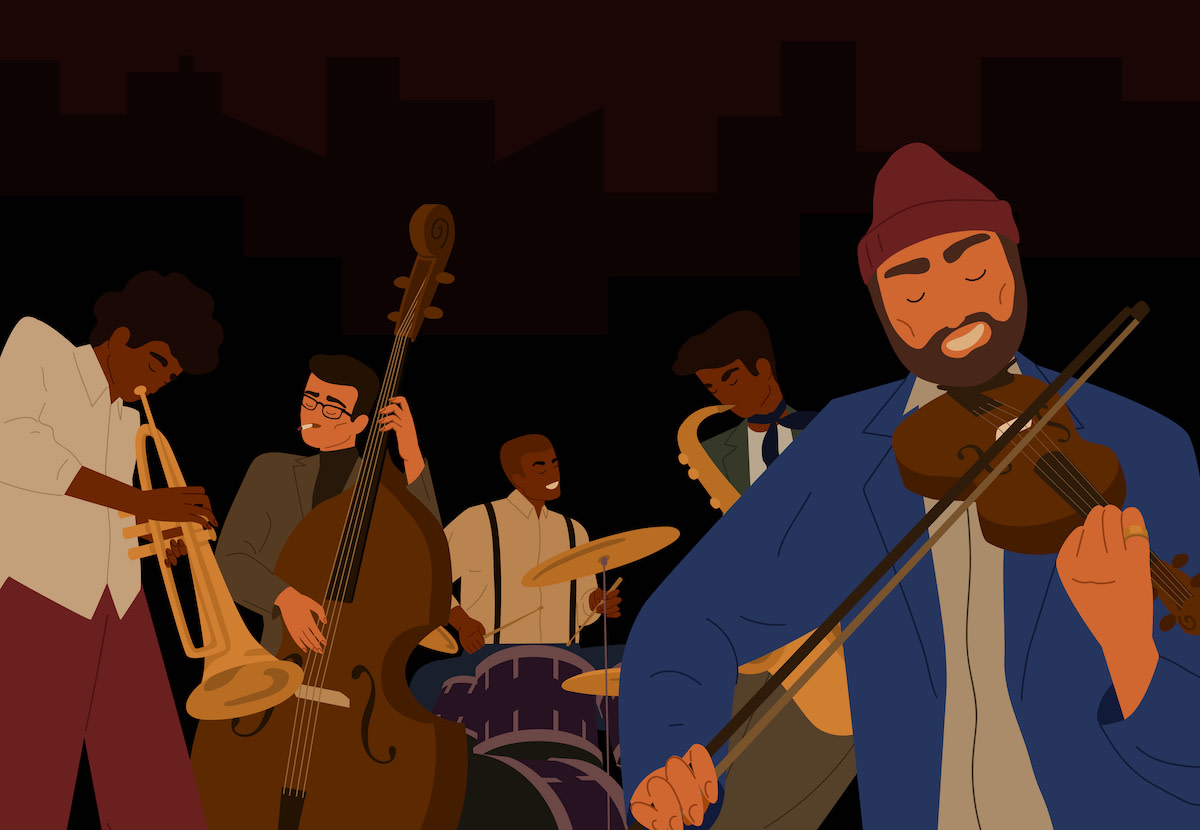How to Comp When Playing Jazz Music
Written by MasterClass
Last updated: Jun 7, 2021 • 3 min read
Being a great jazz musician isn't exclusively about playing great solos. While a jazz guitarist or jazz pianist can impress a crowd with improvisation, those players have another role in the band. As partial rhythm section members, jazz guitarists and piano players must be able to back up a soloist just as any bassist or drummer would. Doing so requires comping skills.
Learn From the Best
What Is Comping?
In popular music—most notably jazz—to comp is to play chords and rhythms that provide support for a soloing band member. Some instrumentalists, such as bassists and drummers, spend nearly all of their time comping, while others, such as saxophonists and trumpet players, rarely comp at all. Certain instrumentalists—most notably jazz guitar and jazz piano players—spend time both soloing and comping for other players.
Why Is Comping Important?
Comping is elemental to jazz because playing in a band is like being on a team. Each player gets their turn in the spotlight—even the drummer—and when the focus is one player, the others focus on comping. For example, a saxophone solo can sound amazing when the band is playing the proper chords and comping rhythms beneath the sax player. The saxophone soloist relies on the comping techniques of the drummer, bass player, guitarist, and pianist to make their riffs and runs sound contextually correct. Without good comping, even a perfectly played solo can sound rootless.
5 Tips for Great Comping in Jazz Music
Jazz comping takes as much practice and study as jazz soloing, but there are several techniques that can improve your comping right away.
- 1. Stick to the basics at first. To properly comp, you must faithfully follow the chord progressions notated on the lead sheet of a given song. Advanced guitar and piano players will often insert challenging chord voicings or substitute chords to keep things interesting, particularly as solos get longer. Even so, ambitious voicings and chord substitutions should only come after a player has mastered the basics of jazz guitar comping or jazz piano comping.
- 2. Show rhythmic discipline. To ensure that you don't draw focus away from the soloist, base your rhythmic playing on the soloist's choices. If they're playing a fairly simple solo, use conservative comping—for instance, a quarter-note pulse or the Charleston rhythm, a dotted quarter note followed by an eighth note. If the soloist shows more ambition, you can add some syncopation into your playing. Just make sure you're letting the soloist lead.
- 3. Use voice leading. The practice of voice leading prioritizes playing notes that, when possible, move in stepwise motion. If you're playing a C major 7 chord and the next chord is F major 7, use voice leading for a seamless chord change, maintaining the C and E notes that both chords have in common rather than moving the entire chord up a fourth in a block shape. Then, use stepwise motion to reach the other two notes you need for an F major 7 chord. You'll hear the difference right away.
- 4. Add tensions to your chord voicings. Comping with triads will get the job done, but you can make the soloist sound better if you add tensions by extending chords to a ninth or thirteenth. Challenge yourself to comp with four- and five-note chords (sometimes casually referred to as "jazz chords"), which will make the soloist's lead lines sound more complex.
- 5. Sneak in some countermelodies. Without overpowering the solo, find some ways to work in countermelodies to complement the lead player. This can work in a call-and-response relationship with the soloist, or it can be more subtle. If you play the piano, insert some countermelodies with your right hand while holding down the chord progression with your left hand. Even the most rudimentary countermelody can make a solo more interesting.
Want to Learn More About Music?
Become a better musician with the MasterClass Annual Membership. Gain access to exclusive video lessons taught by musical masters, including Herbie Hancock, Sheila E., Timbaland, Itzhak Perlman, Tom Morello, and more.
